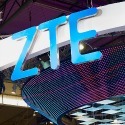
After a year from hell in 2018, ZTE is still with us and has big expectations in the 5G market.
It may be a minnow compared to its rivals, and excluded from key markets, but the company is not lacking in confidence.
Maggie Chui, vice president of wireless marketing and strategy, says ZTE holds more than a third of the China LTE equipment market and "we believe our 5G market share will be commensurate with our 4G share."
The state-owned vendor is often accused of being over-reliant on its domestic market, but she argues that is a strength.
She says ZTE's China track record shows it has the ability to build "hundreds of thousands or even millions" of basestations, many of them in complex scenarios that have inspired innovation within the firm.
"In China the operators set high standards and require customized solutions for their 5G products. These high-level requirements make us very competitive and we are definitely leading that part compared to our overseas competitors."
So far ZTE has won 35 5G commercial contracts, including 32 outside China. But Chui argues that the sheer number of contracts "may not be as significant as the size of the contracts."
By the end of next year China is likely to have 600,000 basestations deployed. With many European operators still deploying "in the hundreds," China will account for a significant share of the international 5G market for some time.
Chui doesn't mind throwing some shade at Nokia over its recently acknowledged chipset misstep.
Nokia's choice of FGPAs (field programmable gate arrays) instead of ASICs (application-specific integrated circuits) "pretty much makes them lag behind the competition by two years," she says.
When it comes to the issues facing 5G, the ZTE view aligns closely to the rest of the industry.
Want to know more about 5G? Check out our dedicated 5G content channel here on
Light Reading.
Chui says operators everywhere are concerned about finding profitable use cases.
The big opportunity was in the industrial Internet, but at this stage the business models "are not very clear because everybody is still exploring them."
She said ZTE was working with more than 300 vertical industry partners, including China heavy machinery manufacturer Sany.
"We are trying to explore scenarios to utilize 5G to improve efficiency and reduce costs and to grow business opportunities."
She said operators were also anxious about the sheer complexity of managing 2G, 3G, 4G and 5G networks.
"That's going to be very complex and finding a solution that simplifies the network management is definitely very important."
Aside from that, the heavy power consumption of 5G is also keeping operator execs awake at night.
"It is the higher costs as well as the need to protect the planet from additional emissions," she says.
"We are developing technologies to cater to that. One is a 7nm chipset that will reduce power a lot. From the network architecture point of view, virtualization and cloudification will make them more software-driven and more power-efficient."
— Robert Clark, contributing editor, special to Light Reading
About the Author(s)
You May Also Like












